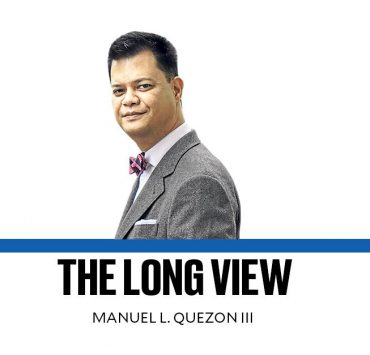Rare moment of unity

As is always the case, it takes some time before regulation catches up with the rapid development of technology. Online gaming, or let’s call it for what it is—gambling, is no exemption.
Indeed, these online gambling apps had been aggressively promoted using celebrities all over outdoor media, social media platforms, and mobile phone apps, and the entire ecosystem—including the government—has profited handsomely from their ubiquity. And by this time, stories abound of Filipinos who had fallen to the dark side of unfettered betting on online gambling apps.
It has taken years, but to the credit of regulators and the private sector, they have finally woken up to the dire need to put common-sense regulations in place. They were no doubt jolted into action by the pleas for help and valid concerns raised by the Church, civil society groups, and lawmakers introducing drastic legislative action.
They found themselves united in pushing for wholesale reforms to rein in the mammoth industry that had grown exponentially since the pandemic, when Filipinos discovered these “entertainment” apps—legitimate or otherwise—on their mobile phones that take in small bets and fan hopes of winning the jackpot.
The Philippine Amusement and Gaming Corp. for example, last week ordered the operators of online gaming platforms to take down their billboards and other out-of-home advertisements by Aug. 15 this year.
24-hour ‘cooling off’ period
The gaming regulator is also set to forge an agreement on advertising regulations, including restrictions on primetime advertising, with the Ad Standards Council which screens advertising content across media platforms including billboards that line the country’s busiest thoroughfares.
The Bangko Sentral ng Pilipinas, for its part, has drafted a circular seeking to add more regulations for digital payment service providers, in recognition of how easy it has become to access and then use these gambling apps. Among the provisions in the draft circular to be imposed on BSP-regulated entities is the daily limit on fund transfers to online gambling accounts with the maximum set at 20 percent of an individual’s average daily balance.
The BSP is also looking to set up a threshold for “heavy usage” of online gambling payment services, such that when the limit is reached, the payment operators must implement a 24-hour “cooling off” period, which means that they cannot make another transfer until the end of that mandatory pause.
Financial institutions under its ambit will also be compelled to disable lending options when an e-wallet is linked to an online gambling account.
Know-your-customer
The BSP has given stakeholders until July 25 to comment on the draft circular. Once approved, the financial companies dealing with licensed online gambling platforms will be required to detail total gambling-related transactions and list of partner e-games, among other information that will be required to establish their exposure to the segment that incidentally brought in P48.79 billion in government revenues last year.
“These regulations establish standards and expectations for PSPs (payment service providers) in the provision of online gambling payment services as well as set the enhanced know-your-customer measures to uphold applicable legal prohibitions on access to and participation in online gambling,” said the BSP.
FinTech Alliance PH, for example, whose members account for over 90 percent of digital transaction volumes in the Philippines, said it supports the BSP’s proposed framework on the responsible use of licensed gaming and would stand behind “stronger safeguards and collaborative compliance” to protect consumers, especially the poor who are disproportionately affected by the scourge of unregulated online gambling.
Moral responsibility
“The Alliance recognizes the growing concern from the public and other sectors over the impact of gaming. We are united in our commitment to be part of the solution by working closely with regulators, elevating safeguards, and protecting the welfare of Filipino consumers,” said Lito Villanueva, founding chair of FinTech Alliance PH, which counts e-wallet leaders GCash and Maya among its members.
On its own, these fintech companies must take the moral responsibility to make their own corrective steps to prevent access for payments to gambling and not let profit motives prevail.
Even the country’s three largest integrated resort-casino operators—Solaire Resort, Newport World Resorts, and Okada Manila—have come out with a joint statement to affirm their continued commitment to operate “with the highest standards of integrity, transparency.”
With wide agreement among the different stakeholders, all players from the government to the private sector and civil society as well as individuals can seize this rare moment of unity to rethink whether we are a society that values money more than lives and make the difficult but important decisions.





















